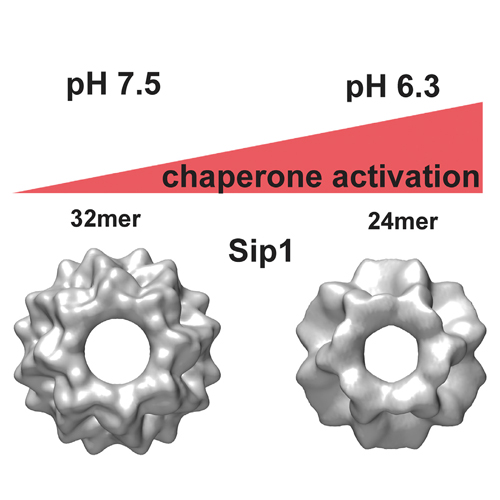The Chaperone Activity of the Developmental Small Heat Shock Protein Sip1 Is Regulated by pHDependent Conformational Changes
18-Jun-2015
Molecular Cell, 2015, DOI: http://dx.doi.org/10.1016/j.molcel.2015.04.019, Volume 58, Issue 6, p1067–1078 published on 18.06.2015
Molecular Cell, online article
Molecular Cell, online article
Small heat shock proteins (sHsps) are ubiquitous molecular chaperones that prevent the aggregation of unfolding proteins during proteotoxic stress. In Caenorhabditis elegans, Sip1 is the only sHsp exclusively expressed in oocytes and embryos. Here, we demonstrate that Sip1 is essential for heat shock survival of reproducing adults and embryos. X-ray crystallography and electron microscopy revealed that Sip1 exists in a range of well-defined globular assemblies consisting of two half-spheres, each made of dimeric “spokes.” Strikingly, the oligomeric distribution of Sip1 as well as its chaperone activity depend on pH, with a trend toward smaller species and higher activity at acidic conditions such as present in nematode eggs. The analysis of the interactome shows that Sip1 has a specific substrate spectrum including proteins that are essential for embryo development.











